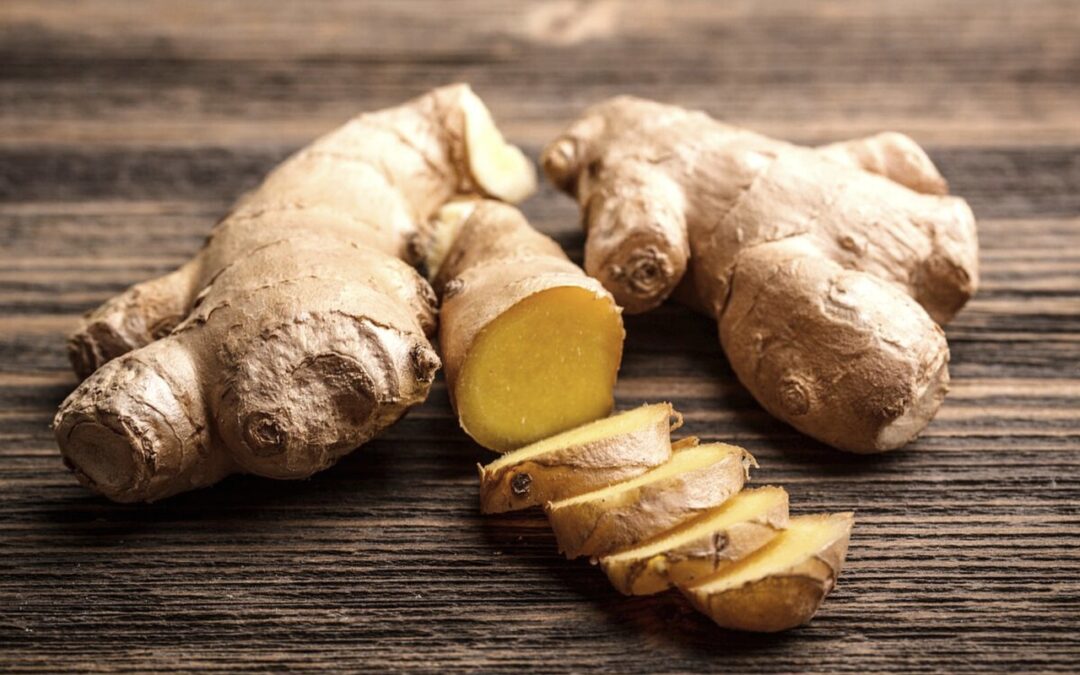Ginger is a fantastic spice that is easily incorporated into the daily diet. As well as adding a beautiful fragrant aroma to curries and stir-fries, it has many therapeutic properties. Not only can Ginger be used as an ingredient in cooking it can also be made up as a tea using the dry herb or the fresh grated root. Tablet and capsule forms can be found when higher doses are required for therapeutic effect. Below are some of the things that Ginger can be used for.
Nausea – Ginger helps to reduce vomiting and nausea, including motion sickness and morning sickness during pregnancy.
Digestive aid – Ginger can assist with improving digestive discomfort by increasing saliva and bile flow to help with the digestion of food.
Gastric Ulcers – Ginger has some anti-ulcer activity and may inhibit Helicobacter Pylori, a bacteria associated with gastric ulcers.
Muscle and joint pain – Ginger can be used to help reduce inflammation and pain. Internal and topical preparations can be used. A concentrated ginger tea swilled or held in the mouth can be used for a toothache.
High cholesterol – Ginger helps to lower LDL “bad” cholesterol
Anti-oxidant – It helps decrease free-radical activity and amps up our body’s production of it’s own anti-oxidant compounds.
Parasites and infections – Ginger has anti-microbial & anti-parasitic properties.
Disclaimer: This information is provided for general interest and education only. It is not designed to replace the advice of your doctor or natural therapist. Herbal and nutritional medicines should be prescribed by a health professional trained in these fields to ensure they are both safe and beneficial.
